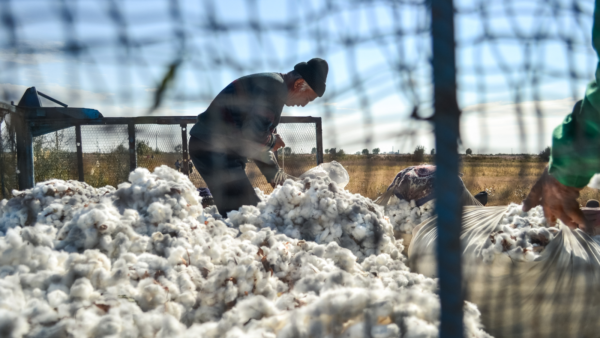This website uses cookies so that we can provide you with the best user experience possible. Cookie information is stored in your browser and performs functions such as recognising you when you return to our website and helping our team to understand which sections of the website you find most interesting and useful.

ECCJ joins civil society organisations and trade unions in calling on the European Parliament and national governments to improve the legislative proposal for a regulation on prohibiting products made with forced labour in the EU internal market.
The ban would cover all products from all regions and all company sizes, big and small. We believe this proposal is an essential step in building a smart mix of tools to help eliminate forced labour across the world. However, the Commission’s proposal is not enough for the 17.3 million people trapped in forced labour in the private sector and the 3.9 million people in state-imposed forced labour, both inside and outside the European Union.
Lasting impacts of the COVID-19 pandemic, as well as armed conflicts and climate change, have created unprecedented risks of modern slavery. With the significant rise in modern slavery according to the newly released 2021 global estimates, we need urgent, meaningful action and laws to tackle the exploitation of workers around the world.
The Commission proposal will need to be improved by the European Parliament and the Council in these key areas:
Remedy for workers
ECCJ has criticised the lack of provisions to facilitate, compel or otherwise provide for the remediation of victims of forced labour in global value chains. It is impossible to eradicate forced labour without remedy and access to justice for workers.
The ban must also ensure that workers’ views and interests are taken into account at all stages of the investigation, decision and enforcement process, including to identify and mitigate any unintended adverse impacts of a ban. National authorities should work with workers and their representatives to use the ban as leverage to improve conditions. For this reason, everyone affected should be protected from retaliation when engaging with companies and enforcement authorities. Confidentiality should be automatic.
Role of due diligence
Human rights due diligence checks should not be allowed to shield companies against investigations. Companies must not be allowed to rely on code of conducts, social audits, and other contractual clauses, as these have already been proven wholly ineffective to meaningfully address forced labour in companies’ value chains.
However, during an ongoing invesigation and prior to any decision to destroy products, companies could use due diligence to prove that adequate remediation has been meaningfully provided and measures have been introduced to prevent the recurrence of forced labour.
The ban
The proposal foresees only one sanction: the prohibition to place tainted products on the market, coupled with an obligation to dispose of existing products. In addition, the ban requires significant amount of evidence, with the burden of proof resting entirely on the shoulders of national authorities — and not on companies, as previously noted by ECCJ. This means that products will remain freely available until the outcome of the investigation, in which time they can be rerouted to other markets.
Systemic issues
The ban disregards the fact that forced labour is often systemic. While identifying products is important, forced labour should not be addressed in silos. Furthermore, the current text does little to address the root causes of forced labour, such as discrimination, power imbalances, unfair purchasing practices, production delays, lack of livelihood opportunities, the absence of a living wage, and land rights.
The proposal also fails to address state-imposed forced labour. The current version does not explicitly include entire product groups from specific regions, such as cotton from Turkmenistan and the Uyghur Region. This will greatly reduce the power of the ban.
Disclosure
Companies should be required to map and publicly disclose their suppliers, sub-suppliers and business partners in their whole value chains. If not, competent authorities and petitioners will face significant obstacles in identifying entities implicated in forced labour within a company’s value chain. Making this essential information public would also assist companies, including SMEs, to assess risk and to undertake effective due diligence measures.












